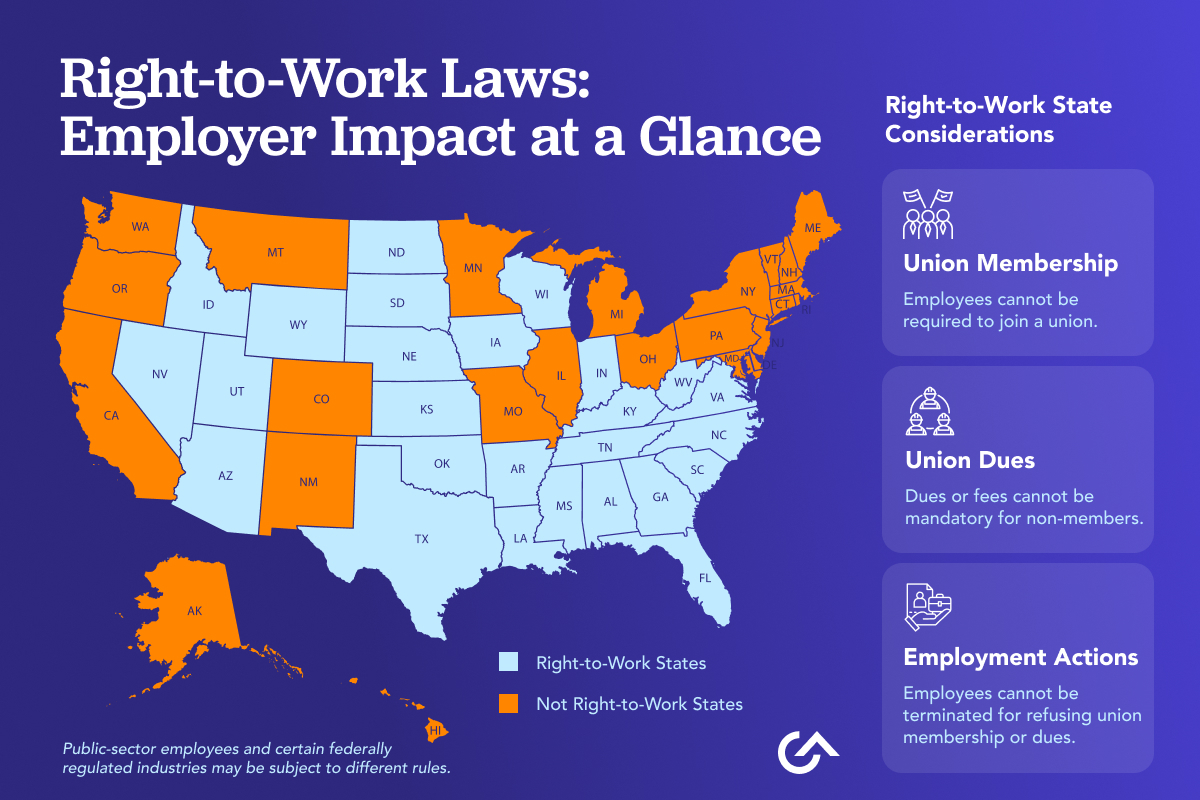
This article is not intended to be exhaustive nor should any discussion or opinions be construed as legal advice. Readers should contact legal counsel for legal advice.
The “right-to-work” movement is a result of the Taft-Hartley Act, which amended the Wagner Act to include language that affirmed the rights of individual states to enact their own “right-to-work” laws, which make it illegal in those states for employers to compel workers to join or not join, nor to pay dues to, a labor union as a condition of employment.
In states without right-to-work laws, workers who don’t join unions or at least pay some sort of fee can be terminated for such actions. (Employees in right-to-work states can still join a union if they wish, however.)
NOTE: Certain industries and public-sector jobs may have different rules/regulations regarding unionization. Additionally, while we make every effort to update this information as possible, please refer to each state’s labor agency for the most up-to-date information on its right-to-work law.
There are 26 states that have passed “right-to-work” legislation — either by statute or constitutional amendment.
List of right-to-work states:
| Alabama | Kansas | South Dakota |
| Arizona | Kentucky | Tennessee |
| Arkansas | Louisiana | Texas |
| Florida | Mississippi | Utah |
| Georgia | Nebraska | Virginia |
| Idaho | Nevada | West Virginia |
| Indiana | North Carolina | Wisconsin |
| Iowa | North Dakota | Wyoming |
| Oklahoma | South Carolina |


This article is not intended to be exhaustive nor should any discussion or opinions be construed as legal advice. Readers should contact legal counsel for legal advice.
By typing here, you consent to our Privacy Policy and Terms of Use. You may unsubscribe from this communication at any time.
© , G&A Partners. All rights reserved.
